Minister of Finance Nguyen Van Thang - Photo: GIA HAN
National Assembly Chairman Tran Thanh Man chaired the first group of questions on financial issues, with the main respondent being Minister of Finance Nguyen Van Thang.
This group of issues focuses on solutions for financial work for socio -economic development, ensuring growth targets, renewing traditional growth drivers, and establishing and promoting new growth drivers.
Solutions to improve the operational efficiency of state-owned enterprises; solutions to support and promote the development of the private economy into the most important driving force of the economy; solutions to promote the attraction of foreign direct investment (FDI). Mechanisms and policies to promote and attract investment, and develop industrial parks and economic zones.
Sharing the fire with the Minister of Finance were Deputy Prime Minister Ho Duc Phoc, Deputy Prime Minister Nguyen Chi Dung, and Ministers of Industry and Trade, Agriculture and Environment, Construction, Science and Technology, and Foreign Affairs.
The question and answer session with Minister of Finance Nguyen Van Thang is expected to last until 2:50 p.m. the same day.
Solutions to make business households feel 'excited' about paying taxes
June 19, 2025 09:18 GMT+7
Delegate Hoang Van Cuong raised a question about Resolution 68, which proposed a solution to develop business households by eliminating lump-sum tax, and Resolution 198 of the National Assembly, which decided to eliminate lump-sum tax for business households from January 1, 2026. This policy is affecting millions of business households with a fearful mentality.
During the discussion in the hall, some delegates suggested reviewing or postponing the implementation deadline. This shows that households are not afraid to pay taxes but are afraid of how to calculate taxes and the procedures to pay them correctly.
He asked the Minister to inform him that the Government has plans and solutions to prepare for collecting new taxes after abolishing lump-sum tax for business households so that they feel comfortable, professional, and excited about paying taxes.
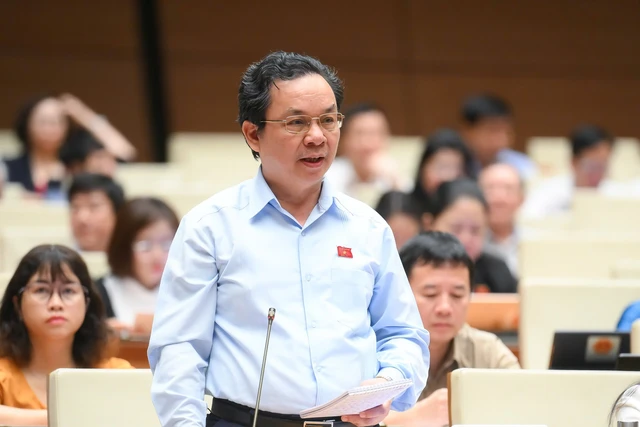
Delegate Hoang Van Cuong - Photo: GIA HAN
Responding to the question of delegate Hoang Van Cuong about abolishing lump-sum tax, Minister Nguyen Van Thang said that Vietnam's tax system has been assessed by international agencies as basically approaching international standards. Regarding the transparency of some types of manually collected taxes, it is a huge barrier, leading to a lack of transparency in tax management. Recently, Resolution 68 of the Politburo and Resolution 198 of the National Assembly required abolishing lump-sum tax in 2026.
Although the lump-sum tax mechanism is suitable for a certain period, it has now revealed many shortcomings, lacks transparency, is easily abused, causes inequality between business types, and does not create motivation for business households to develop into small and medium-sized enterprises.
He emphasized that the abolition of lump-sum tax from 2026 is the correct policy of the Party and State, a fundamental and necessary step to make transparent the activities of business households, creating equality in tax regime between business households and enterprises...
According to Mr. Thang, this policy is in the process of implementation and has just been implemented, affecting millions of business households, so the Ministry is preparing to synchronize legal and technological aspects to ensure convenience and reduce costs and procedures for households.
In particular, reviewing and perfecting tax policies, the Ministry is proposing to amend the Law on Tax Administration and the Law on Personal Income Tax towards a new tax management model and transparent, easy-to-implement declaration and management, simplifying invoices and documents, ensuring that business households are not under pressure when converting to enterprises.
Green, circular business model is an inevitable trend
June 19, 2025 09:13 GMT+7
Regarding the 2% support policy, Minister Nguyen Van Thang said that for businesses converting to a green, circular business model that meets the standards is very valuable and this is an inevitable trend.
However, Mr. Thang said that the biggest barrier at present is access to green finance, especially for small and medium enterprises. Resolution 198 has provisions for interest rate support and he shared his worries and concerns about the implementation of this policy.
Regarding solutions, Mr. Thang said that the Ministry of Finance has drawn on experience to propose 3 solutions. In particular, the drafting of implementation guidance documents must ensure clarity, feasibility, and ease of implementation.
The Ministry also reported to the Government on the implementation of this policy through two channels: the extra-budgetary financial fund system and commercial banks. Regarding the fund implementation, the Ministry is urgently issuing a decree to implement this policy and reporting to the Government this year.
For implementation through commercial banks, the Ministry will coordinate with the State Bank to develop a guiding decree towards innovating support methods, overcoming previous implementation shortcomings; clearly defining standards, subjects, simple procedures and ensuring feasibility.
Allocating resources properly and sufficiently, Mr. Thang said that it is expected to allocate enough for non-budgetary financial funds such as the small and medium enterprise development fund, the environmental protection fund, and the local development investment fund. Along with that, there will be policies to support commercial banks to implement lending.
There are 158 foreign trading floor providers declaring and paying 23,000 billion VND in taxes.
June 19, 2025 09:03 GMT+7
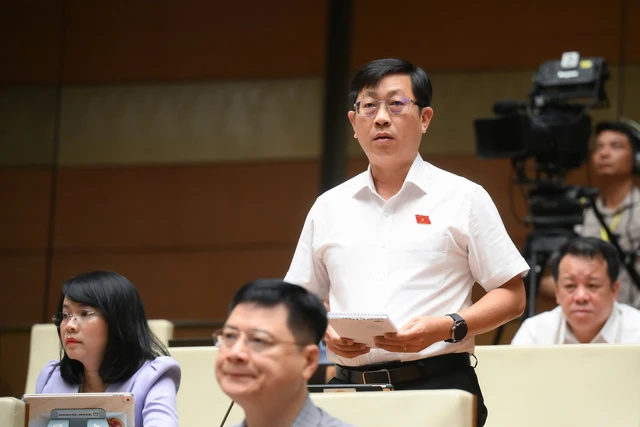
Delegate Nguyen Huu Thong - Photo: GIA HAN
Delegate Nguyen Huu Thong (Binh Thuan) raised the issue that tax management on e-commerce platforms is currently facing many difficulties. In reality, there are many cases of tax fraud, affecting budget revenue and creating unfair competition for small traders, traditional businesses, including supermarkets and shopping centers.
Recently, the National Assembly passed a law amending 9 laws, including regulations on tax management for e-commerce activities. Delegates asked the Minister about the implementation of the above regulations and the solutions to manage e-commerce activities?
Delegate Hoang Quoc Khanh (Lai Chau): At this session, the National Assembly passed Resolution 198 on private economic development.

Delegate Hoang Quoc Khanh - Photo: GIA HAN
Accordingly, private enterprises, business households and individual businesses are supported by the State with an interest rate of 2%/year when borrowing capital to implement green projects and circular projects. Although excited, voters are also worried because this 2% interest rate support policy was previously implemented (Resolution 43) ineffectively, with a very low loan rate. What solutions are there to quickly bring the policy into real life?
In response, Minister Nguyen Van Thang said that recently the Ministry of Finance has had many solutions to drastically implement tax management content in e-commerce activities. These include issuing regulations on invoices and documents, tax deduction and payment responsibilities of e-commerce platforms; business households and business individuals can authorize platforms to create electronic invoices and identify personal numbers via social networks.
At the same time, promote policy communication, coordinate with domestic and foreign trading floors to communicate policies to relevant subjects. Apply science, technology and artificial intelligence (AI)... for management.
Initial results: 95% of population databases have been standardized; data has been connected and shared with banks and e-commerce websites. 158 foreign suppliers have declared and paid taxes, collecting 23,000 billion VND in taxes.
In addition, 106,000 individual business households declared and collected 1.2 trillion VND through the electronic information portal. E-commerce tax collection in the first 5 months of 2025 achieved encouraging results, growing by 55%, very large, over 75,000 billion VND.
In the coming time, the Ministry of Finance will continue to perfect regulations, clearly define e-commerce business activities; clearly identify organizations and individuals doing e-commerce business.
Along with that, instructions on electronic tax declaration and payment; upgrading the electronic portal; accessing declaration records of foreign platforms that do not have headquarters in Vietnam. At the same time, perfecting the database, using AI to warn of tax fraud; reviewing organizations and individuals that generate income from e-commerce and digital platforms.
Do not develop industrial zones at all costs
June 19, 2025 08:52 GMT+7
Delegate Nguyen Van Danh (Binh Duong) questioned solutions for effective use of land resources.
Especially the infrastructure of new industrial parks in the context of some industrial clusters and zones that have been established but have not yet come into operation or are facing great difficulties, and localities with conditions to attract them still have limited land resources.
Responding to this content, Minister Nguyen Van Thang clearly stated that it is necessary to thoroughly understand the principle of not developing industrial zones at all costs and indiscriminately.
Current regulations require provinces and cities not to open new industrial parks when the occupancy rate of existing parks reaches an average of 60%.
This regulation ensures balanced allocation between regions, avoids land waste, abandoned infrastructure, and encourages localities to switch to new generation, environmentally friendly industrial park models.
He said that it is necessary to flexibly institutionalize difficult areas, provinces with a total industrial park area of less than 1,000 hectares, industrial parks located in preferential areas, new models such as ecology, high technology... to be exempted from the 60% occupancy condition to encourage investment attraction.
The industrial park development policy must ensure efficient land use and has very specific regulations.
Minister responds to 'having money that cannot be used'
June 19, 2025 08:49 GMT+7
Delegate Tran Kim Yen (Ho Chi Minh City delegation): The world is experiencing unpredictable changes, especially new tariff policies as well as geopolitical instability. International organizations have lowered their global growth forecasts from 0.5% to 1%.
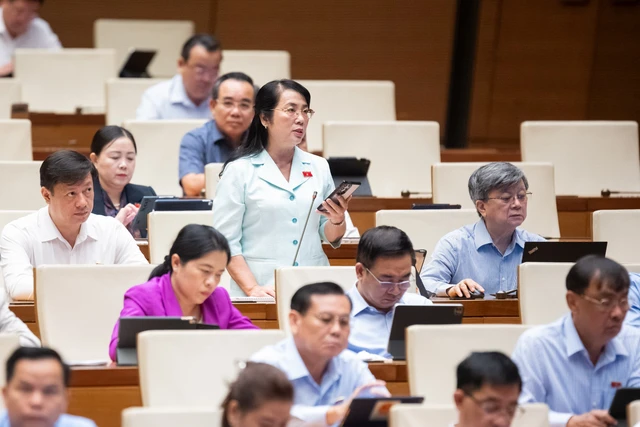
Delegate Tran Kim Yen - Photo: GIA HAN
Vietnam aims for 8% growth - this is one of the huge challenges, requiring high determination and new thinking. One of the solutions proposed by the Ministry is to boost public investment, striving to achieve 100% disbursement.
However, in recent times, despite great efforts from the Prime Minister, ministries and localities, the disbursement rate of public investment is still very low, "people are complaining that they have money but cannot use it". She asked the Minister to tell her about a more feasible solution to achieve the 8% growth target?
In response to this question, Minister Nguyen Van Thang said that in the past 5 months, the Government and the Prime Minister have made great efforts and made special efforts. The results have been not low and are higher than the same period last year.
He emphasized that the Prime Minister and the Government have identified the difficulties and issued many telegrams and documents with close direction, and in 5 months, the disbursement reached approximately 200,000 billion VND, the disbursement rate reached 24.1% of the plan, higher than 2024 (approximately 22%). All key national projects have achieved or exceeded the schedule.
He cited a Government report stating that the first quarter figures were lower than last year, but the first quarter had more than 10 days off for Tet, so it affected the disbursement progress and psychology before and after Tet.
But 5 months have regained relative and absolute numbers compared to the same period last year.
Regarding the target of disbursing 100% of public investment capital to contribute to economic growth, with a growth target of 8%, this is a very large and challenging target when last year it reached approximately 92%.
Mr. Thang clearly stated that the Ministry identified difficulties and obstacles such as low disbursement at the beginning of the year, multi-stage public investment process, poor project preparation, incomplete and overlapping legal system, supply of raw materials, and implementation capacity of some related parties, especially some localities and project management boards, which did not meet requirements.
The Minister proposed three solutions, focusing on removing legal obstacles in public investment regarding land, construction, and administrative procedures.
Determining disbursement results is an important basis when evaluating and classifying the level of task completion in 2025 for collectives and individuals.
Continue to promote organizations, working groups, and steering committees to remove obstacles, especially key projects...
There will be a PPP decree on attracting investment in science and technology.
June 19, 2025 08:45 GMT+7
Referring to the policy of developing the private economy and attracting economic sectors to participate in major projects of the country, delegate Dao Chi Nghia (Can Tho) asked what solutions are there to encourage the private economy to participate in investing in infrastructure and public services?
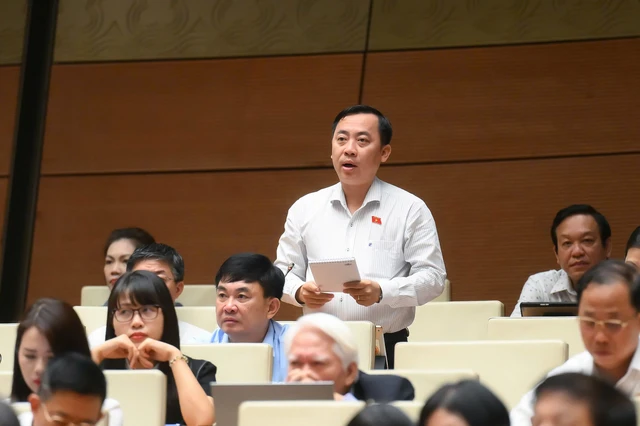
Delegate Dao Chi Nghia - Photo: GIA HAN
In response, the Minister of Finance said that he had advised on amending the Law on Public-Private Partnership Investment on the basis of shortening time and procedures, empowering the Provincial People's Committee to establish or not establish an appraisal council, carry out bidding for projects, simplify evaluation criteria for investors, diversify public investment cooperation fields, attract investment in key projects...
In addition, the ministry is also developing a PPP decree on science and technology with many new points, with open conditions to attract businesses to participate. Actively remove difficulties for projects under state and business contracts to create trust.
Meanwhile, delegate Duong Tan Quan (Ba Ria - Vung Tau) raised issues related to the role of state-owned enterprises, how to ensure international standards, transparency, governance innovation, and improve operational efficiency?
In response, Minister Thang said that state-owned enterprises have further enhanced their role and management capacity to approach international management. However, frankly admitting that the management capacity of state-owned enterprises has not yet approached international standards in terms of strategic thinking, leadership capacity, etc., so it has not been effective.
Therefore, Mr. Thang said the ministry has advised the Government to amend Law 69, helping state-owned enterprises have all the conditions to stand up and apply international standards.
The State has created a legal corridor, but businesses need to unify awareness, improve the responsibility of owners' representatives, improve autonomy and self-responsibility, improve information transparency, international cooperation, take advantage of scientific and technological advances, innovate recruitment, training and development of staff...
3 solutions to realize 2 million businesses by 2030
June 19, 2025 08:31 GMT+7
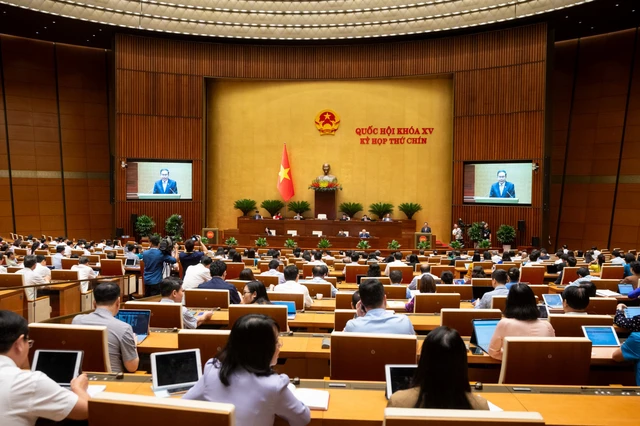
Scene of the questioning session - Photo: GIA HAN
Responding to the question of delegate Dang Bich Ngoc (Hoa Binh) about solutions to realize the goal of reaching 2 million enterprises by 2030, Minister Thang stated that this goal was set in Resolution 68 of the Politburo and the National Assembly issued a resolution to implement it.
This is a very important goal in socio-economic development, promoting the development aspirations of the economy.
However, it is also a huge challenge in the context of declining demand, the domestic business environment still faces many difficulties and challenges, especially challenges from outside, the competitiveness of many enterprises is still weak, requiring high determination, great efforts and drastic actions.
Recently, according to the Minister, in the first 5 months of the year, the number of businesses withdrawing from the market was very large and this is a huge challenge for us.
He pointed out three groups of solutions, the first of which is to create a favorable, transparent, and effective business environment, focusing on removing barriers to entry and operation in the market.
Substantially cut administrative procedures, reduce compliance costs and reform business conditions.
Review and remove obstacles in investment, land, construction, and planning, creating an open and stable corridor for businesses to have the conditions and motivation to participate, and promote digital transformation in management.
Another solution, according to the Minister, is to strongly promote the conversion of business households into enterprises. Currently, we have more than 5 million business households in operation, this is the force with the greatest potential to realize the goal of 2 million enterprises.
The Ministry is reviewing and perfecting the legal framework to narrow the gap between business households and enterprises in terms of administration and accounting, implementing the policy of abolishing lump-sum tax from 2026, promoting transparency and professionalization...
At the same time, there are practical support policies, 3-year corporate income tax exemption, business license tax abolition, providing digital platforms, free accounting software...
The third solution is to improve business competitiveness, prioritize access to capital, land... increase resilience, adaptability, and reduce the number of businesses withdrawing from the market.
What is the solution to increase the number of businesses in both quantity and quality?
June 19, 2025 08:27 GMT+7
Opening the question-and-answer session, Finance Minister Nguyen Van Thang said that thanks to the leadership of the Party, State, National Assembly and Government, the economy has achieved many outstanding and comprehensive results; economic activities are diverse and vibrant. Important indicators are increasingly positive, better than the same period last year.
However, the current socio-economic development situation also faces many challenges and difficulties. New growth drivers are in the early stages and need time to develop.
Delegate Dang Bich Ngoc (Hoa Binh) questioned the economic and domestic context with many difficulties and challenges; many businesses withdrew, production and business activities were difficult. This affected the implementation of the goal of having 2 million businesses by 2030. The Minister said there are solutions to develop businesses in both quantity and quality in the coming time?
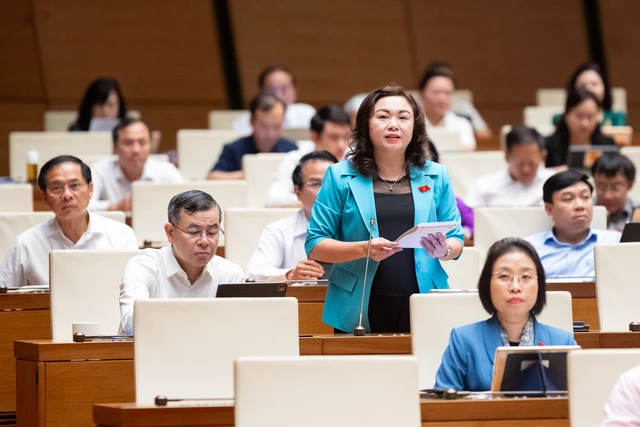
Delegate Dang Bich Ngoc - Photo: GIA HAN
Delegate Tran Kim Yen (HCMC) raised the issue of unpredictable changes in the world, especially new tariff policies; organizations lowered growth forecasts by 0.5 - 1%.
The Ministry of Finance has proposed solutions to streamline procedures and promote public investment disbursement. However, according to Ms. Yen, despite great efforts from the Prime Minister, ministries and localities, the disbursement rate in 2025 is still low.
The Minister said there is a more feasible solution to speed up the disbursement of public investment capital, ensuring 8% growth by 2025?
86 delegates registered to question Minister Nguyen Van Thang
June 19, 2025 08:18 GMT+7
Speaking at the opening of the question and answer session, National Assembly Chairman Tran Thanh Man said the question and answer session will last 1.5 days.
The National Assembly will question Minister of Finance Nguyen Van Thang and Minister of Education and Training Nguyen Kim Son. Deputy Prime Ministers in charge of sectors, ministers and heads of sectors will also participate in explaining further issues raised by delegates.
At the end of the question-and-answer session, Permanent Deputy Prime Minister Nguyen Hoa Binh will represent the Government to report and clarify related issues and directly answer questions from delegates.
The National Assembly will vote to pass the Resolution on interpellation at the end of the session as a basis for agencies to implement and for the National Assembly, the National Assembly Standing Committee, National Assembly agencies, National Assembly delegations, and National Assembly deputies to supervise. At the same time, through the interpellation of National Assembly deputies, ministers and heads of sectors will have more information to perfect effective solutions, improve the quality of direction and administration, and create strong changes in each management area.
In accordance with the National Assembly's session regulations, the question-and-answer session at this session continues to be conducted in the "quick question, short answer" format. The person answering the question has no more than 5 minutes to speak on the issue within the field of questioning before the National Assembly begins the questioning.
Each turn, the chair of the session will invite 3 delegates to ask questions. Each National Assembly delegate will have no more than 1 minute to ask questions and each delegate will focus on only one issue of their greatest interest. This will allow many National Assembly delegates to be questioned and create favorable conditions for ministers to monitor, record, summarize and fully answer the issues of concern to National Assembly delegates.
Answering time is no more than 3 minutes for each question. National Assembly delegates have the right to debate with the person answering the question, the time is no more than 2 minutes.
According to the National Assembly Chairman, 86 delegates registered to question Minister of Finance Nguyen Van Thang.
THANH CHUNG - TIEN LONG - NGOC AN
Tuoitre.vn
Source: https://tuoitre.vn/quoc-hoi-chat-van-bo-truong-bo-tai-chinh-nguyen-van-thang-20250618172058537.htm


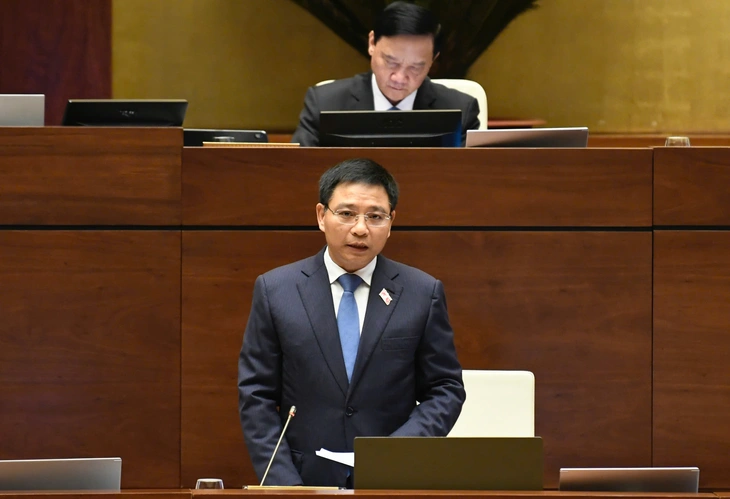




![[Photo] Solemn opening of the 1st Government Party Congress](https://vphoto.vietnam.vn/thumb/1200x675/vietnam/resource/IMAGE/2025/10/13/1760337945186_ndo_br_img-0787-jpg.webp)

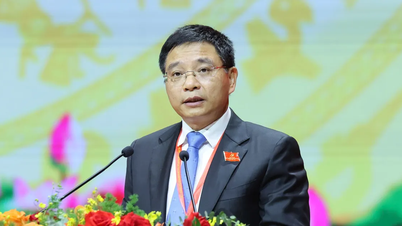





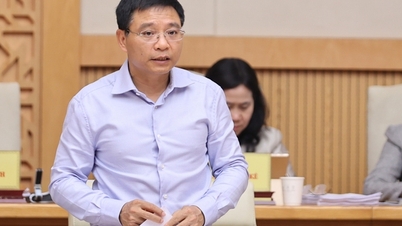


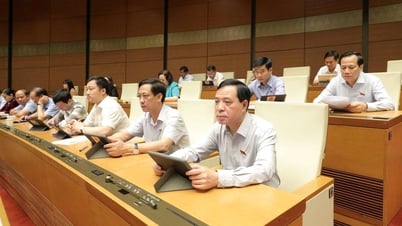
















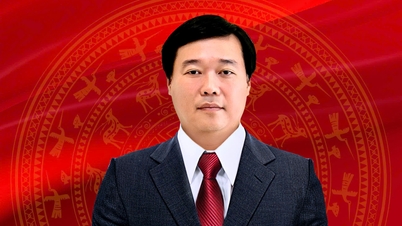
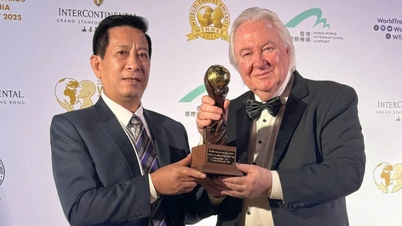
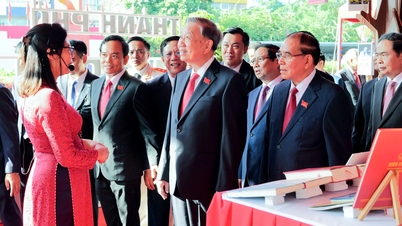

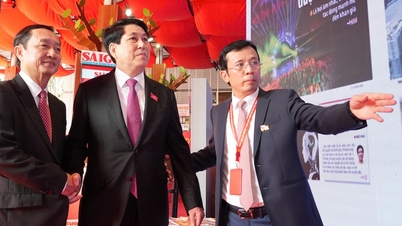
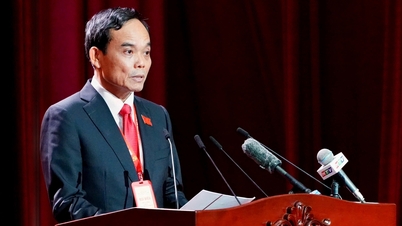






















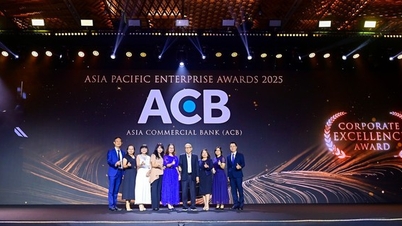
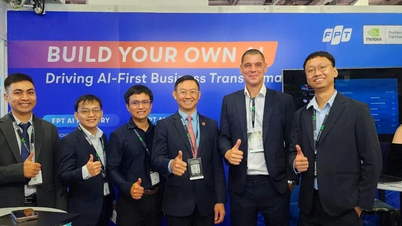






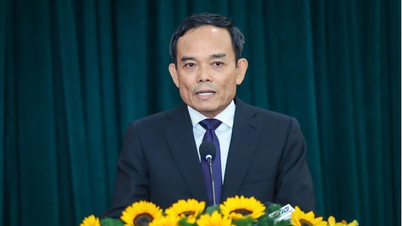




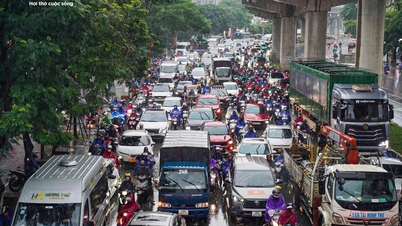
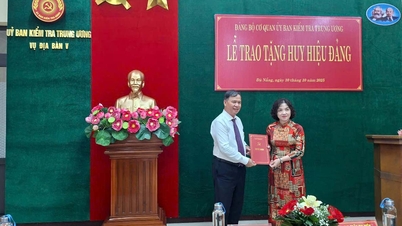







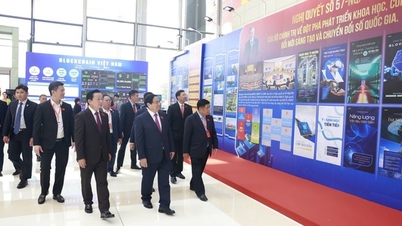
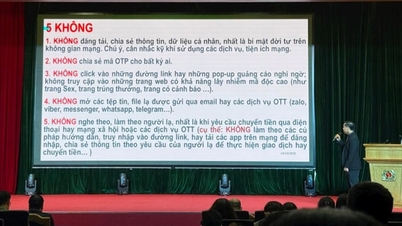

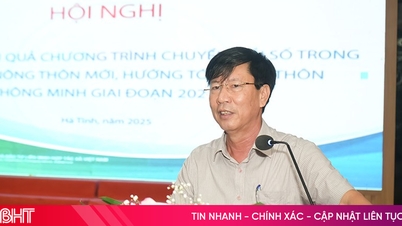


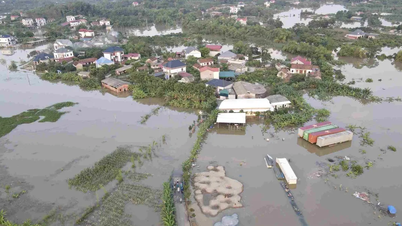
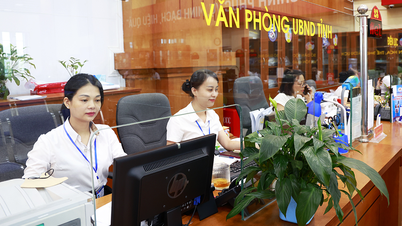
















Comment (0)